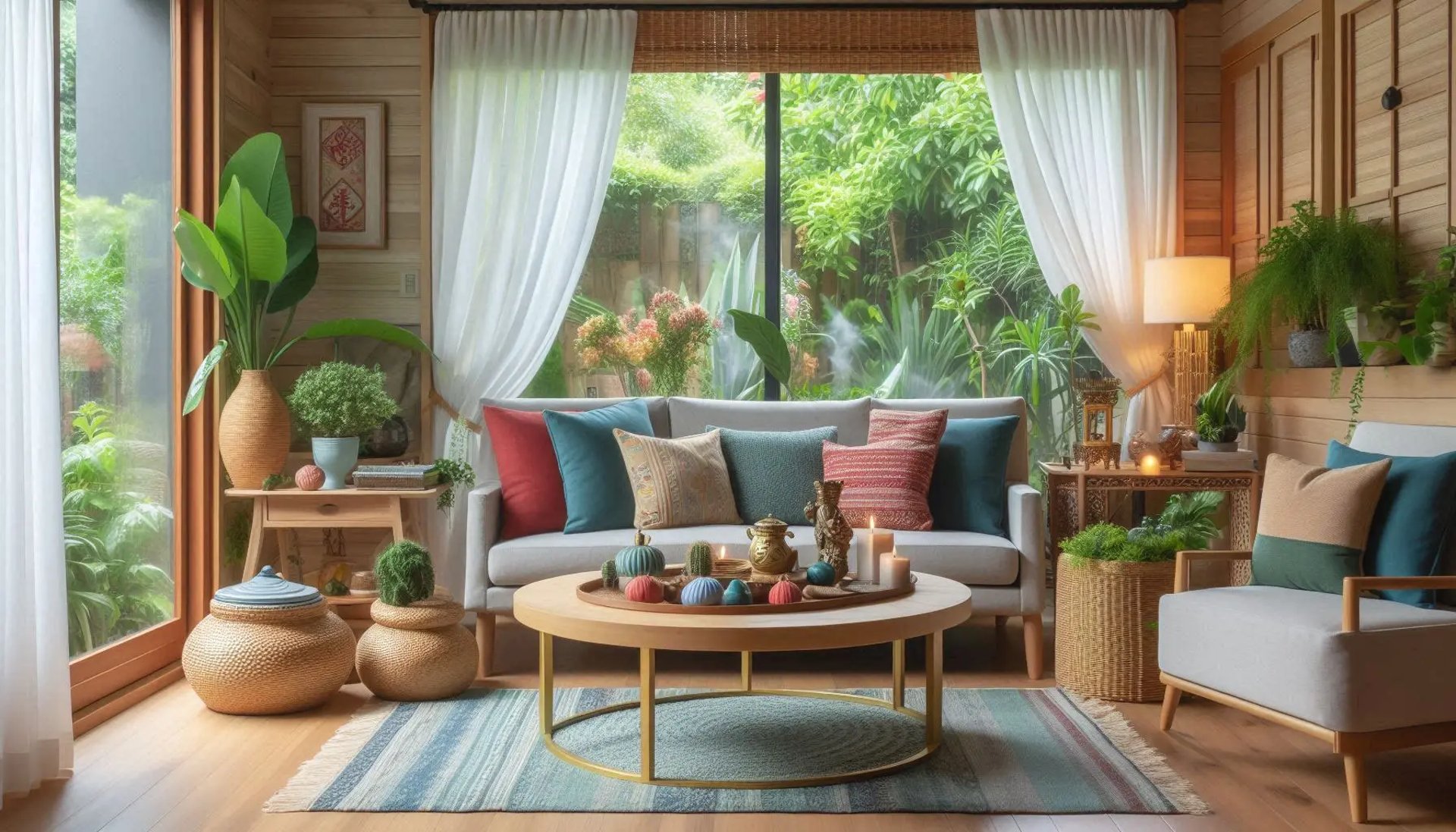
Feng Shui for Low Budget Homes: Transformative Tips on a Shoestring
Discover how to incorporate the ancient art of feng shui into your low budget home. Learn practical, affordable tips to create a balanced, harmonious space - no matter your budget.


Feng Shui for Low Budget Homes
Feng shui, the ancient Chinese art of harmonizing one's environment, is often associated with grand, luxurious homes. However, the principles of feng shui can be applied to homes of any size or budget. In fact, implementing feng shui in a low budget home can be incredibly transformative, helping to create a space that feels balanced, peaceful, and nurturing.
The Key to Feng Shui on a Budget
The key to feng shui on a budget is to focus on the essentials and make the most of what you have. It's not about spending a lot of money, but rather about being intentional and making thoughtful choices. Here are some tips to help you incorporate feng shui into your low budget home:
1. Declutter and Organize
One of the foundational principles of feng shui is the idea of creating a clear, unobstructed flow of energy throughout your home. Clutter and disorganization can block this flow, leading to feelings of stagnation and unease. Start by going through each room and getting rid of anything that you no longer need or use. Donate, recycle, or sell items that are taking up valuable space.Once you've decluttered, focus on creating a sense of order and organization. Use storage solutions like shelves, baskets, and bins to keep things tidy and accessible. This doesn't have to be expensive – look for second-hand options or repurpose items you already have.
2. Maximize Natural Light
Sunlight is a powerful feng shui element, representing the yang energy of warmth, vitality, and positivity. Maximize the natural light in your home by keeping windows clean and unobstructed. Consider using sheer curtains or blinds that can be easily opened during the day.If your home doesn't have a lot of natural light, get creative with lighting. Strategically placed lamps can help to brighten up dark corners and create a sense of warmth and inviting energy. Look for energy-efficient LED bulbs, which can be surprisingly affordable.
3. Incorporate Greenery
Plants are a key element in feng shui, representing the wood element and the flow of life-giving energy. Even if you have a small space, try to incorporate some greenery. Potted plants, succulents, and herbs are all great options that can thrive in low budget homes.Placement is important – position plants in areas that feel stagnant or in need of a boost of energy. The entryway, for example, is a great spot for a lush, vibrant plant to welcome you and your guests.
4. Use Color Intentionally
Color is a powerful tool in feng shui, as different hues can evoke different emotions and energies. When working with a low budget, focus on using colors that are calming, grounding, and harmonious.Neutral tones like beige, gray, and white can create a sense of serenity and balance. Earthy colors like green, brown, and blue can also be soothing and nurturing. Avoid using too many bright, bold colors, as these can be overstimulating in a small space.If you're feeling creative, consider painting an accent wall or adding colorful textiles like throw pillows or curtains. These small pops of color can make a big impact without breaking the bank.
5. Arrange Furniture Thoughtfully
The placement of your furniture can have a significant impact on the flow of energy in your home. In feng shui, it's important to create a sense of balance and harmony, with clear pathways and no obstructions.Start by positioning your bed, couch, and other major pieces in a way that allows for easy movement and a clear view of the room. Avoid placing furniture directly in front of doors or windows, as this can disrupt the flow of energy.If you're working with a small space, get creative with multi-functional furniture like ottomans with storage or a daybed that can serve as both a couch and a guest bed. Thrift stores and secondhand shops are great places to find affordable, high-quality pieces.
6. Incorporate Mirrors Strategically
Mirrors are a powerful feng shui tool, as they can help to create a sense of depth and expand the perceived size of a space. They can also be used to redirect energy and enhance the flow of chi (life force energy) throughout your home.Hang mirrors across from windows to reflect natural light and create a sense of openness. You can also use mirrors to visually "double" the size of a small room. Just be sure to position them carefully, as mirrors can also create a sense of imbalance if not placed thoughtfully.
7. Personalize with Meaningful Decor
While it's important to create a harmonious, balanced environment, feng shui also emphasizes the importance of personal expression and individuality. Incorporate decor and accessories that hold personal meaning for you, such as family photos, artwork, or sentimental objects.These personal touches can help to infuse your home with a sense of warmth and authenticity, making it feel like a true reflection of who you are. And the best part is that these items don't have to be expensive – thrift stores, garage sales, and even your own collection of treasures can be a great source of inspiration.
Key Takeaways
Focus on the essentials and make the most of what you have.
Declutter and organize to create a clear flow of energy.
Maximize natural light and use strategic lighting.
Incorporate greenery and use color intentionally.
Arrange furniture thoughtfully and use mirrors strategically.
Personalize your space with meaningful decor.
Listicle: 5 Affordable Feng Shui Essentials
Bamboo plant: A symbol of strength, flexibility, and good luck.
Himalayan salt lamp: Emits a warm, calming glow and helps to purify the air.
Feng shui mirror: Helps to expand the perceived size of a space and redirect energy.
Decorative bowls or trays: Can be used to display crystals, stones, or other meaningful objects.
Scented candles: Help to create a soothing, relaxing atmosphere.
FAQ
Q: Do I need to spend a lot of money to implement feng shui in my home?
A: No, you don't need to spend a lot of money to incorporate feng shui principles into your home. The key is to focus on the essentials and make the most of what you have.
Q: What are some easy, low-cost ways to add feng shui to my home?
A: Some easy, low-cost ways to add feng shui to your home include decluttering and organizing, maximizing natural light, incorporating greenery, using color intentionally, and personalizing your space with meaningful decor.
Q: How important is it to have a perfectly balanced feng shui home?
A: While balance and harmony are important in feng shui, it's not necessary to have a perfectly balanced home. The goal is to create a space that feels nurturing and supportive, not to achieve perfection.
Q: Can I still practice feng shui if I rent my home?
A: Absolutely! Many of the principles of feng shui can be applied to rented homes and apartments. Focus on the areas you can control, such as decluttering, lighting, and personal decor.
Q: How long does it take to see the benefits of implementing feng shui in my home?
A: The benefits of feng shui can be felt relatively quickly, often within a few weeks or months. However, it's important to be patient and consistent with your efforts. Feng shui is a holistic practice that takes time to fully integrate into your home and life.
